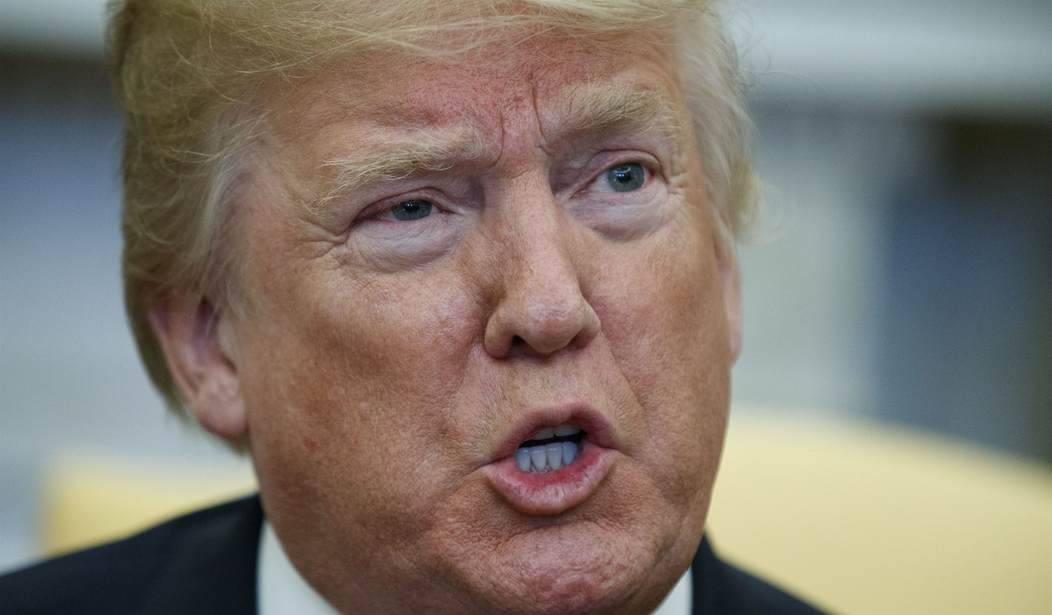President Trump’s recent announcement of tariffs against steel and aluminum imports has rocked Washington and Wall Street to the core. Let me say that again. A change to trade policy designed to protect two industries has rocked Washington and Wall Street to the core.
Now, looked at one way, this is an alarming lack of perspective. True, the tariffs in question may or may not be economically wise. I am personally unconvinced both by the “sky is falling” arguments, and by the president’s confidence that “trade wars are easy to win.” But these are ultimately only tariffs on two specific products, not sweeping impositions of trade duties across the entire US economy. What is more, the tariffs are only 25 percent on steel, and 10 percent on aluminum, respectively. In contrast, the Smoot-Hawley tariff imposed 50 percent import duties on all products. A return to isolationist fortress America this ain’t, so one might wonder: why the freakout?
Or at least, one would wonder that if one looked at this decision only in isolation. But, taken in the context of President Trump’s other recent behavior, they represent something that understandably would freak out Washington and Wall Street: namely, Trump is bucking GOP party orthodoxy, including and especially the orthodoxy of the GOP establishment donor class.
In other words, the tariffs are just the most Trumpian tip of the Trump-branded iceberg hurtling toward DC business as usual. In the past week, Trump has also made noises suggesting he is willing to buck the National Rifle Association (NRA) on gun laws, possibly in rather drastic ways. Like the tariffs, I can’t say I’m convinced on the merits of what Trump has been willing to encourage – in fact, speaking as a lifetime member of the NRA, some of it downright scares me. But, regardless of my fears, I remain more encouraged by the fact that the president’s rhetorical moves in this area so vividly display that he’s not owned by anyone.
Recommended
And then came the really good news. After months of dilly dallying around the problem of the opioid crisis, President Trump out and out said what many of us have been praying he’d say since the crisis began: that the federal government would join the numerous state lawsuits against the pharmaceutical industry for causing the crisis in the first place. “I keep saying, ‘if the states are doing it, why isn’t the federal government doing it?’ So, that will happen,” Trump intoned. “That will happen.”
What all this adds up to is that Trump’s apparent ideological Stockholm Syndrome may well be coming to an end. Whereas the Salon conservatives of #NeverTrump could give themselves the cold comfort that Trump hadn’t taken over the conservative movement, but had rather merged with it, now the president looks to have given up being the high priest of Bootleg Reaganism, and has gone back to smashing idols.
Who knows what could be next? Perhaps the president will finally instruct his Federal Trade Commission (FTC) to begin treating the Snowflake Barons at Google, Facebook, and Twitter like the monopolistic online Stasi they are, particularly now that Google has returned to disappearing any and all right-of-center commentary from YouTube.
Maybe the president will take notice of the fact that rogue actors at his Department of Health and Human Services (HHS) are helping the very companies he plans to sue by gutting one of the most effective voluntary cost control measures in the Washington’s policy arsenal: the 340B drug pricing program, which requires drug companies to sell drugs at a reduced price to hospitals and clinics serving rural or working class populations in exchange for access to money from Medicare and Medicaid. It would certainly fit with the president’s apparent interest in going back to helping his own base, seeing as the hospitals and clinics that benefit most from 340B tend to exist in Trump-friendly parts of America. Maybe the president might even follow up on his earlier promise to negotiate directly with drug companies through Medicare, period, with 340B as a template.
Or, perhaps the president will retreat back into the cocoon of donor-approved True Conservatism ™, once again leaving his base with faintly dimming hope. But I suspect that is not to be. Trump’s tariff decision looks too much like a crossing of the Rubicon: a sign that we’re going to get the populist nationalist president that America voted for, not the Insult Comic Jeb Bush imitation that the swamp tried to force him to become.
No more is the question, “Should we let Trump be Trump?” The question is, “Will Trump let the swamp be the swamp?” For now, at least, the answer appears to be “no.”
























Join the conversation as a VIP Member